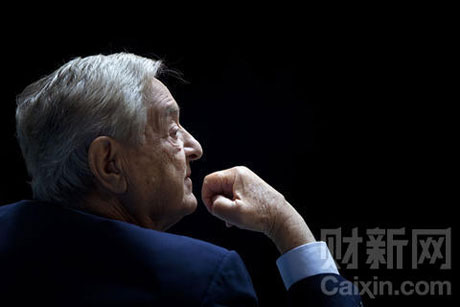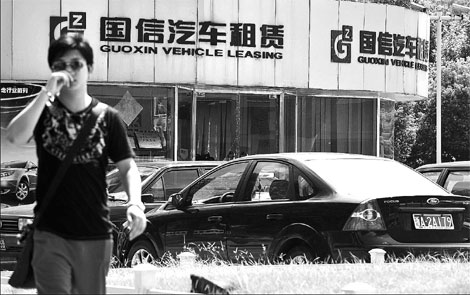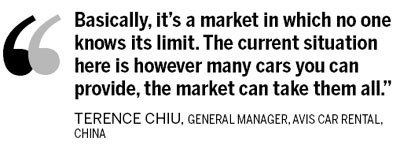George Soros and other influential voices at the 2012 World Economic Forum found China at the center of financial discourse
 |
Caixin: You experienced the Asia financial crisis and now we are in the middle of the euro debt crisis. What are the differences?
George Soros: Actually, there is a remarkable similarity – a weakness in the structure of the world. The countries that became heavily indebted in euros turned out to be in a similar position to the Asian countries that became heavily indebted in U.S. dollars.
Both are borrowing in a foreign currency. You see, this is something that I didn't realize until recently: The euro is not controlled by individual countries. They have no control over issuing the currency. They are in the same position as a third-world country borrowing in a foreign currency.
And in the case of Asian countries, it was the IMF that imposed strict fiscal discipline. In the case of European countries, it was Germany that was fulfilling the same function. And that policy of strict fiscal discipline is counterproductive because it pushes the country that is heavily in debt into a recession, while the debt burden actually increases. And that is what's happening in Europe.
Caixin: When a financial crisis arrives, people claim there are two forces at play: One is from rational market investors, the other is from speculators. In terms of the euro crisis, which is the dominant force?
Soros: I believe that it was mainly caused by a lack of understanding about how financial markets really operate. European authorities have had very little interaction with the market, little experience. So financial authorities in the Anglo-Saxon world understand markets better than continental Europeans.
I gave a long list of mistakes made by European authorities in dealing with the Greek crisis, always doing too little too late. That's what aggravated the crisis. To me, it's very convincing.
Caixin: You said previously there should first be fiscal consolidation in the wake of the euro crisis, then restructuring. What else is needed?
Soros: Fiscal discipline at a time of economic decline creates this deflationary spiral. But given the fact that Germany does not want to be the deep pocket, financing other countries, you can't avoid first imposing fiscal discipline. Then, you must find a way to exit this vicious circle. And this cannot be done by the individual countries.
Keynes would have argued that creditor countries should stimulate their economies to offset recession in debtor countries. Now, the biggest creditor country, Germany, is obliged by its constitution to balance the budget. Therefore, it cannot stimulate.
The only possibility for stimulation has to come from the European Union. It has to be underwritten, supported or guaranteed by all member countries acting jointly and that means some kind of euro bond. Which is of course something that (German Chancellor) Angela Merkel is opposed to.
Caixin: How big is the likelihood of the euro falling apart?
Soros: The euro cannot fall apart because, if it did, the consequences would be catastrophic, because financial assets are intermingled based on a common currency. And if they became separated and had different values, you wouldn't know whether your counterparty was bankrupt or not. So it would be a dislocation that would be out of control.
What is happening now is that, increasingly, the financial system within the euro zone is being re-nationalized, so that most of Italian bonds are being held by Italian banks, Spanish bonds by Spanish banks, and so on. If that goes on for an extended period, it becomes possible for the euro to fall apart.
Caixin: What will we do if the worst-case scenario happens?
Soros: Well, we are moving in that direction. And of course there have been currency unions in the past that fell apart. For instance after the First World War in the Austro-Hungarian Empire, Czechoslovakia, Hungary and Austria each had a separate currency.
But in the present phase, where German banks and French banks have a lot of Italian and Spanish bonds, and German banks have claims against Spanish companies and so on, to break up this union now would be catastrophic. You can't unscramble an omelet. Once you have mixed the eggs together, you can't separate them again. This is actually in a very gradual way happening, slowly.
For an Italian bank to borrow from the central bank at 1 percent, and buy Italian bonds at 6 percent is very good arbitrage, and without risk. Because if Italy fails, then Italian banks would fail also, whether they have the bonds or not. So for them, it's riskless. For a German bank, it would be very risky. So right now, the financial system of the euro zone is being unscrambled.
Caixin: It seems you are very concerned about the role of international financial institutions such as the IMF. What kind of role can it play, and what kinds of reforms should IMF undergo?
Soros: Actually, the IMF right now is playing a very good role. First of all, it has substantial financial resources because as a result of the London G20 meeting in 2009, there was a US$ 1 trillion recapitalization.
The economists at IMF understand that the policy advocated by Germany is counterproductive. So they keep warning Europe against the policy that Germany is advocating. And I think that's very healthy, very positive.
Caixin: What role do you think China should play on the international financial stage in, for example, the euro crisis or an even greater crisis?
Soros: China has become one of the few positive forces in the global economy, a motor moving the economy forward. Not a strong motor, because it's much smaller than the United States. But it's wanted because of its (foreign currency) reserves and ability to stimulate the economy.
China can move the economy, the global economy, forward. But the (Chinese) leadership does not want to take responsibility for the global system. They say that China is a developing country, has got many problems on its own, and cannot take on an addition of the global system. (This is) very similar to the position that Germany is taking, not wanting to accept responsibility for the rest of the euro zone.
So within the small euro system, Germany is the main creditor. In the global system, China is the main creditor. And the creditors don't want to take responsibility for preserving the system.
That is the point that Keynes made many years ago: That creditors are equally responsible if there's an imbalance, not only debtors. If you only punish the debtors and don't stimulate the creditors, then the world goes into deflation. So in different contexts, we are replaying the problems of the Great Depression. We haven't learned the lessons that John Maynard Keynes taught us about deflation.
Caixin: What do you think about the yuan's internationalization progress?
Soros: That is moving forward very rapidly because European banks had been the main suppliers of credit to the world.
In the first quarter 2011, European banks had lent the developing world US$ 3.7 trillion. American banks lent US$ 1.5 trillion and Japanese banks lent something like US$ 700 billion.
So out of over US$ 5 billion in lending to the developing world, more than two-thirds came from European banks. That, of course, included banks based in London. The French banks, for instance, were very big in financing international trade. And because of the euro crisis, the banks were short of capital and had to shrink their balance sheets. That created a lack of financing for international trade.
So a lot of trade started shifting from dollars to being financed by offshore yuan based in Hong Kong. Actually, the Hong Kong market was rising, and was growing very rapidly. There has been a considerable slowdown in the last few months, and I don't know whether this is due to developments in the Chinese economy, or the fact that European banks now have access to credit from the European central bank. But the credit crunch for the European banking system has now eased.
Caixin: But the yuan is not fully convertible yet. How would that impact its path to internationalization?
Soros: It's very indirect because the mainland yuan is separated from the offshore yuan. But there are interconnections. There was a Korean market, and there has been some more or less black market capital moving into China, which then because of the credit crunch in Europe left China, and it may or may not have coincided with the collapse of the Chinese real estate bubble. Whether there is a causal relationship as well is something that needs a lot of research. But I suspect there is a connection.
Caixin: Emerging markets weathered the storm relatively well. What kinds of risks do you think are ahead for emerging markets, perhaps from a so-called global imbalance?
Soros: Well, the developing world has done much better, mainly because of stimulation from China. Brazil could sell its food to China and could borrow a lot of money very cheaply to develop oil reserves in remote areas. It's very expensive. Brazil's economic growth is fueled by trade and investment with China.
The same is true in Africa. A lot of capital has gone into Africa, and if China now becomes more cautious because of the decline in exports, decline in its export surplus, that could have negative effects on Africa and Latin America.
Caixin: "State capitalism" was a buzz word at Davos this year. Some think China's economic achievements prove the success of state capitalism. How would you compare state capitalism to liberal capitalism?
Soros: First of all, as an individual, I'd hate to be subjected to the bar of the state, that my existence should be determined by the state. And if it were subject to that power from another state, like China, I don't think I would like that.
I don't think state capitalism is a very attractive form of capitalism. It has been very successful in China, but I very much hope that China will continue to develop and pass that phase as it develops, and begin to respect the freedom of individuals more. And I think the Chinese people feel the same way.


